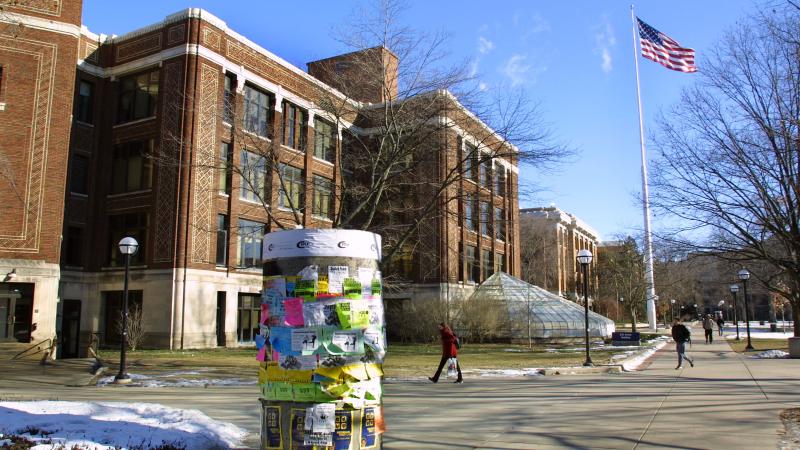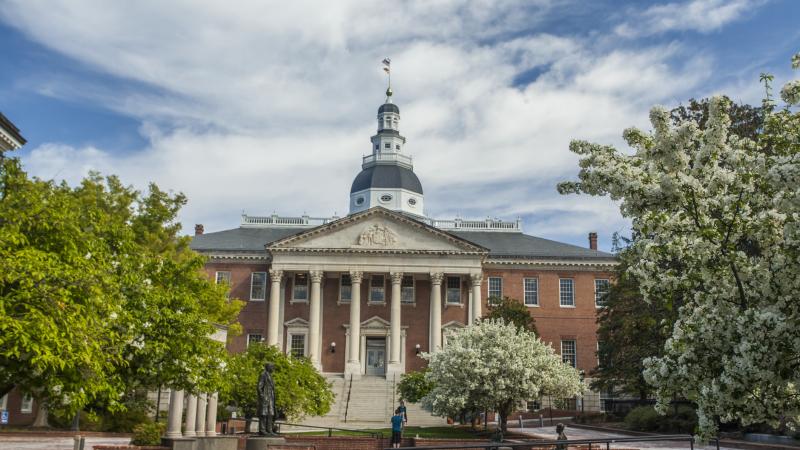Judges skeptical that HHS won't punish religious doctors for refusing 'gender affirming care'
DOJ claims dissenting pediatricians and Catholic physicians don't have reasonable fear of punishment, but 6th Circuit judges call that "hard to believe" based on HHS statements and theorize investigation itself is "the punishment."
If the Biden administration doesn't intend to punish medical professionals for refusing to participate in so-called gender affirming care, from using patients' preferred pronouns to referring them for castration, it's certainly not acting like it.
That was the impression of at least two of three judges on a 6th U.S. Circuit Court of Appeals panel hearing a pre-enforcement challenge to the feds' reinterpretation of the Affordable Care Act's prohibition on sex discrimination in Section 1557 as covering gender identity as well.
The American College of Pediatricians and Catholic Medical Association seek the reinstatement of their 2021 lawsuit against the Department of Health and Human Services to protect their members, who have conscience objections to gender affirming care, from "crippling penalties."
The original complaint claimed to find 22 practices mandated by the reinterpretation, including off-label prescription of puberty blockers, replacing sex with gender identity in medical records and banning doctors from expressing the view that sex is immutable.
Doctors must file "assurances" with HHS's Office for Civil Rights that they are following its Section 1557 interpretation to receive federal funding, and could face "civil lawsuits" and OCR investigation if they don't comply, according to the plaintiffs.
The two judges, Presidents Trump and Reagan appointees Chad Readler and Danny Boggs, showed particular concern for speech-related provisions in the list of 22. Some of them "are not even patient-related" and could conceivably apply to an op-ed saying there are only two sexes or denying "nonbinariness," Boggs said.
Though it didn't come up at last week's hearing, the 6th Circuit previously upheld the right of a public university professor to refuse to use a student's preferred pronouns without facing punishment, suggesting HHS's reinterpretation could face similar skepticism.
Justice Department lawyer McKaye Neumeister struggled to convince Readler and Boggs that the plaintiffs don't have a "substantial probability" of violating the law "as applied in light of" the Religious Freedom Restoration Act, so they lack legal standing.
The supposed list of 22 practices "does not exist" and "you won't find it in any agency rule or guidance document," Neumeister said. Without a "concrete factual context" to apply the law, "we can't assess whether the refusal to engage" by the plaintiffs is unlawful because RFRA "can require altering the statutory obligations."
The plaintiffs themselves have explicitly said they'll keep engaging in practices HHS allegedly prohibits, showing no chilling effects, Neumeister said.
Protecting gender identity is "a very important aspect of the administration itself," Readler told Neumeister, noting that HHS requires its own employees to use preferred pronouns. "It's just hard to believe that you're not going to enforce the law given everything that's been said and done."
Alliance Defending Freedom lawyer Christopher Schandevel, representing the plaintiffs, repeatedly reminded the judges what HHS has said and done, warning that accepting DOJ's argument would be "sounding the death knell of pre-enforcement challenges."
Beyond the 2016 regulation on Section 1557 and "refusal to disavow" enforcement since the suit was filed, HHS issued "notice and guidance" on gender affirming care in March 2022 that states OCR is "investigating" and "enforcing" cases of discrimination, Schandevel noted.
Four months later, HHS invoked the Supreme Court's 2020 Bostock ruling, which found that Title VII of the Civil Rights Act protects employees from discrimination based on gender identity, to justify another rulemaking to cement gender identity in Section 1557.
Schandevel read the judges HHS's response in the 2016 regulation to commenters who asked the agency to define the phrase "health services related to gender transition."
Because these services "may change as standards of medical care continue to evolve," OCR plans to interpret them "broadly" and they "may include, but [are] not limited to," surgical treatment, hormone therapy and psychotherapy, HHS said at the time.
Schandevel told Readler that CMA member Rachel Kaiser, an emergency room doctor, was their best representative to show associational legal standing, a recurring concern for the panel.
The feds have conceded that Kaiser has "already treated for a prostate issue a man who identified as a woman," ADF's July 5 reply brief states.
Because her routine practice is to chart patients "by sex" and speak to them "using correct sex-based terms and pronouns" regardless of gender identity, Kaiser has and will engage in "arguably proscribed conduct" under the government's interpretation, the brief says.
Boggs asked whether "we're supposed to find standing on the basis that someone, someday, may come in" to Kaiser's ER "with some issue that requires this doctor to violate one of the 22?" How exactly Kaiser would violate that list was the only question by Judge Stephanie Dawkins Davis, appointed by President Biden.
The Cuban-born Boggs also questioned whether the assurances doctors must file for federal funding are like a "loyalty oath" pledging, "I am not now and have never been a member of the Communist Party."
While Boggs told Schandevel he found the 2022 notice "quite vague" compared to the plaintiff's list of 22 practices, he grilled Neumeister on her claim that they face no "imminent substantial likelihood" of enforcement.
"Isn't the very investigation part of the harm?" he asked, citing the expression "the process is the punishment." Courts don't have jurisdiction simply because a doctor undergoes an "administrative process," which is "part and parcel of agreeing to accept federal funding," Neumeister replied.
The Republican appointees teamed up when the DOJ lawyer said the plaintiffs cannot show a past history of enforcement. "But this is pre-enforcement," Readler said.
Said Boggs: "Somebody's gotta be first."
HHS last year put "a little more meat on the bone" than Neumeister is conceding by identifying OCR as a "law enforcement agency" that is "investigating" and "enforcing" its 1557 interpretation, which it refuses to specify beyond "saber-rattling," Readler said.
The Facts Inside Our Reporter's Notebook
Videos
Links
- pre-enforcement challenge
- Section 1557
- original complaint
- Doctors must file "assurances"
- last week's hearing
- 6th Circuit previously upheld the right
- 2016 regulation on Section 1557
- "notice and guidance" on gender affirming care
- another rulemaking to cement gender identity
- ADF's July 5 reply brief
















